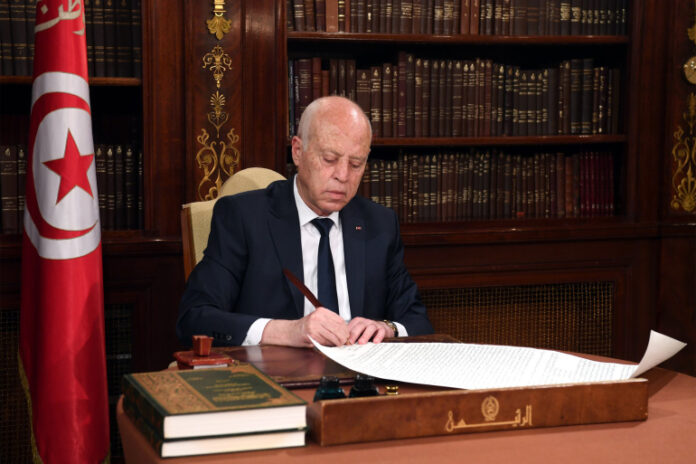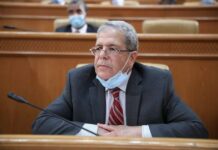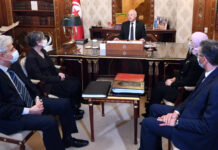An escalating political crisis is now pushing Tunisia’s democracy to the brink. On Sunday, President Kais Saied fired the prime minister and suspended parliament, moves his critics have called a “coup”;This is how Nicholas J. Lotito,a journalist in the Washington Post began his article .
The article described what happened Sunday as a major escalation in the long series of crises that have characterized the country’s post-revolutionary politics. With Tunisia’s health system collapsing under a tide of coronavirus infections, the economy in free fall and parliamentary blocs locked in stalemate, Saied invoked Article 80 of the constitution to claim unchecked executive authority for at least 30 days.
- What does political science tell us? Legal or not
According to the same source,Saied’s actions don’t constitute a coup d’etat, because they neither target the executive, Saied himself, nor threaten violence. Instead, these moves seem closer to the concept of a self-coup or autogolpe — when a sitting leader suspends the legislature and rules by decree, to retain power. By the standards of Latin American self-coups, Saied’s actions so far have been limited.
- It’s been 10 years since the Arab Spring. Why did people protest then — and not now?
Lotito evoked this question and tried to answer it .He explained that it’s a fight for control of government.
Whatever it is called, this is shaping up to be a political fight for public approval and control of government institutions, a fight that Saied is likely to win. Saied appears to have the institutional support of the country’s security forces and military, which reportedly stopped Rachid Ghannouchi, president of the parliament, from entering the building on Sunday. And even as protesters gathered in front of parliament to decry what they see as a worrying return to authoritarianism, jubilant supporters thronged the main boulevard of the capital, celebrating a victory over the corruption and incompetence of Tunisia’s political class.
Now, Saied is again drawing on populist themes, framing his plans to “save Tunisia” as a response to the popular will. For Saied’s critics, Sunday’s actions confirmed their worst suspicions about the president’s authoritarian leanings ,according to the same source.
- What about Tunisia’s military?
Lotito added that Egypt’s 2013 coup — which removed another Islamist party from power and abruptly ended the country’s post-Arab Spring democratization — Tunisia’s military is unlikely to play a leading role in the Tunisian crisis.
African governments are cracking down on the news media. Their citizens might be okay with that.
Even as protracted crises have pushed public trust in political institutions to new lows, the army has remained popular. Public trust in the military can foster stability, but it comes with a risk of politicization. Many Tunisians, especially anti-system voters most supportive of Saied’s outsider presidency, now support an enhanced role for the military in politics.











